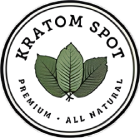
Everyone should have access to safe, high-quality kratom products no matter where they live. But unfortunately, that simply isn’t the reality in some parts of the US.
Indeed, kratom’s legal status has been a source of confusion and controversy, with some states and countries banning the substance altogether.
So: Is it legal to have or use kratom in Oregon?
In this blog, we’ll take a closer look at kratom’s legal status in Oregon. We’ll explore the state’s current laws and regulations regarding kratom and any potential restrictions or limitations.
As part of our ongoing series on the changing legality of kratom in the US, let’s dive right into all things kratom in Oregon.
Kratom Is Legal In Oregon
Oregon kratom users are in luck, because it’s legal to purchase, sell, possess, and use kratom in Oregon, all without fear of legal issues.
That’s right: in Oregon, Kratom is unregulated and, therefore, completely legal.
But the future of kratom in Oregon hasn’t always been clear. Indeed, the state has considered scheduling kratom on several occasions, which would have effectively limited or even outright banned access to this important botanical!
Oregon Has Toyed With Banning Kratom
In 2017, an Oregon bill was proposed that considered whether the state should re-classify kratom as a controlled substance — which would have effectively cutoff Oregon’s access to legal, unadulterated kratom. Reclassification as a controlled substance would put kratom in the same category as opioids, stimulants, hallucinogens, and depressants, among other things. Currently, the DEA does not consider kratom a controlled substance.
As is often the case, members of the American Kratom Association based in Oregon were at the forefront of fighting the proposed legislation.
Whether as a result of the AKA and local kratom enthusiasts efforts or by virtue of a lack of legislator interest, the bill did not pass the committee. When it comes to kratom, Oregon is still onboard – for now.
Does Oregon Have The Kratom Consumer Protection Act?
Currently, some states – namely Arizona, Nevada, Georgia, and Utah – have the Kratom Consumer Protection Act in place. In short, this dictates that dealers can’t sell adulterated or contaminated kratom products.
While Oregon does not have the Kratom Consumer Protection Act as a part of its kratom regulation, the Oregon Department of Revenue does require people who process and sell kratom to register with the Department of Revenue. This attempt to regulate kratom will go into effect on July 1st, 2023.
Adulterated Oregon Kratom Led to Crackdowns
In February 2018, a salmonella outbreak was linked to kratom use, and two people in Oregon were affected.
An official statement was released, warning people not to use kratom in Oregon.
By April, the number of Oregonians affected had increased to 8; by the end, 13 Oregonians were affected out of a total of 199 people across 41 states.
The FDA traced the source of the outbreak to a particular kratom vendor. Although multiple strains of salmonella were identified, there was no common source.
Despite this outbreak, there have been no new bills proposed to ban kratom in Oregon, and the substance remains legal in the state — but it stands as an important reminder to only buy from reputable, lab-tested kratom vendors.
Which States Have Banned Kratom?
Kratom is legal throughout Oregon, but not all states are the same. Currently, the states that have outright banned kratom are as follows:
- Alabama classified kratom’s primary alkaloids, mitragynine, and 7-hydroxy-mitragynine, as Schedule I narcotics in May 2016. This likens kratom to substances like ecstasy and heroin, an unjust misclassification.
- Arkansas banned kratom in February of 2016. In 2017, state medical examiners incorrectly stated that kratom’s alkaloids are derived from opium. It is unlikely we’ll see the Arkansas kratom ban lifted soon.
- Indiana outlawed kratom in 2014 but incorrectly listed the botanical as a synthetic cannabinoid. The legislature later amended its language, classifying kratom as a hallucinogenic substance, another misclassification.
- Rhode Island banned kratom’s alkaloids in 2017. Due to public outcry in other states, Rhode Island’s ban occurred in secret, confusing both residents and law officials. The state will vote on a measure to reverse the ban on September 1st, 2021.
- Vermont banned kratom’s alkaloids in 2016, but they were improperly classified as “synthetic drugs.” In January of 2020, lawmakers filed a bill to decriminalize kratom products, but kratom’s future is still uncertain in the state.
- Wisconsin banned kratom’s alkaloids in 2014, incorrectly associating kratom with both synthetic cannabinoids and hallucinogenic drugs. In 2019, lawmakers held informational meetings with the American Kratom Association (AKA), a step in the right direction.
However, several states’ counties have imposed local bans. These states include California, Illinois, and New Hampshire.
For the rest of the United States, kratom remains a safe, legal, and accessible option for users to buy kratom at their convenvience and to take control of their health and wellness.

